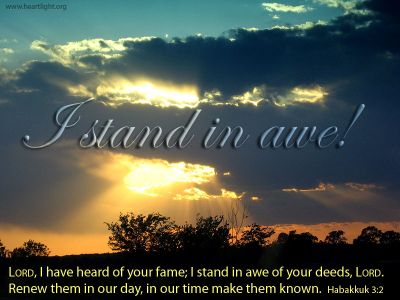If you want to know which direction your toilet flushes on either side of the equator, the answer is very simple: at the end of the swirly in the bowl, you hope it always flushes down to the sewer or the septic tank! (BTW, the side of the equator does NOT affect the direction your toilet flushes, that's just an urban legend.)
And that's the direction the people of God are headed in the book of Judges - down the drain. While God raises up deliverers of every variety imaginable in the book of Judges, the people as a whole only get more and more corrupt as time passes (Judges 2:19). They are caught in an endless cycle of increasing evil leading to ultimate and absolute destruction:
- Key Leader, deliverer, often called the Judge, dies (Judges 2:7-9).
- New Generation that doesn't know the LORD and hasn't experienced the LORD's great works (Judges 2:10).
- They forsake the LORD and do what the peoples around them do and worship what they worship (Judges 2:11-13).
- The LORD hands them over to others who oppress them and plunder them (Judges 2:14-15).
- They cry out and repent to the LORD and the LORD raises up a deliverer, a judge, to save them from their oppressors (Judges 2:16).
- The deliverer, or judge, dies, and an even more corrupt generation begins the cycle again (Judges 2:17-20).
How could they have stopped the cycle?
Even more important, how can we stop the cycle in our day?
Take a look at two very important messages from God that speak directly to our challenge:
Israel served the LORD throughout the lifetime of Joshua and of the elders who outlived him and who had experienced everything the LORD had done for Israel (Joshua 24:31).After that whole generation had been gathered to their ancestors, another generation grew up who knew neither the LORD nor what he had done for Israel. Then the Israelites did evil in the eyes of the LORD and served the Baals. They forsook the LORD, the God of their ancestors who had brought them out of Egypt. They followed and worshiped various gods of the peoples around them... (Judges 2:10-12).
Notice three vital concepts embedded in these verses that point us away from the cycle and back toward vital trust with God:
- Experience
- Relationship
- Knowledge
The failure to pass on a vital faith to the next generations broke down because the new generation hadn't experienced the great working of God personally, they didn't know God in terms of a real relationship, and they didn't know God's story and the great things the LORD had done in the past.
Each of these three elements of real faith are vital. They much happen together or something essential in a person's walk with God is lost.
Coming out of modernism, the focus of Western Christianity was on knowing details. We began to focus on learning things about God and the kind of life the LORD wanted us to live. Sunday school became important and Bible study groups formed. But, most of this was about learning western style - sitting in rows, seeing the cowlick in front of us, and writing down what the teacher was telling us. This is probably a pretty good way of getting #3 of our vital elements of faith addressed, but it does very little to address our deep need to experience God's power in our lives or develop a meaningful relationship with the Father.
But, how do we experience the LORD?
Like Jesus, we can also experience God's presence and begin to build a meaningful relationship with the Father by withdrawing from the crowds and spending intentional time alone with God (Luke 5:16). Learning to pray, trusting in the Holy Spirit to help us commune and communicate with God (Romans 8:26; Ephesians 6:18; Jude 1:20) as we seek to know*1 God as we are known by God (Philippians 3:10-11; John 17:3).
We do this by opening the Bible while asking the same Holy Spirit who inspired the message to speak and convict our hearts with God's truth. We listen to our lives - the words spoken to us in song, Christian conversation, and what we read in Scripture - asking the Holy Spirit to help us hear what God is saying to us. We come to prayer, solitude, time alone with God, and Scripture with the prayer of the famous Mary A. Lathbury hymn, "Break Thou the Bread of Life":
Beyond the sacred page I seek Thee, Lord;My spirit pants for Thee, O living Word!
The LORD wants us to stop the cycle of unbelief, so each of us needs to ask ourselves, "What am I doing to experience God, build an authentic relationship with God, and learn more about the story of God?" Then, we make the commitment to tune our lives to allow these things to happen.
*1 We need to remember that knowing God in Scripture is far more than knowing about God. The Bible in its original languages used the image of a man knowing a woman as an euphemism for sexual intimacy that produces a child (Genesis 4:1 NKJV - Now Adam knew Eve his wife, and she conceived and bore...).












Comments
Have thoughts on this article? Leave a comment